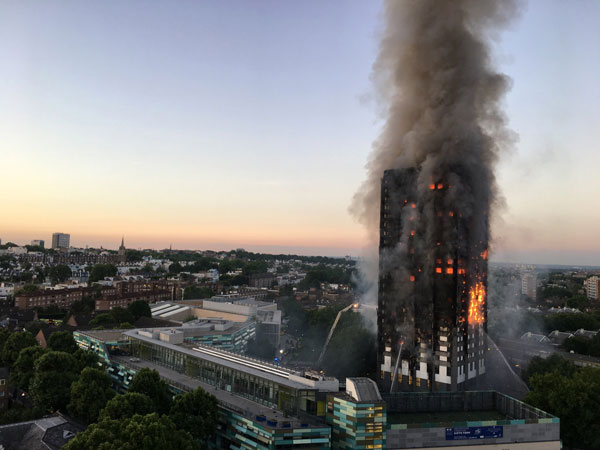Seven years after the death of 72 residents in the horrific Grenfell Tower apartment fire in London, U.K., the long-awaited Phase 2 report of the Grenfell Inquiry was released in early September. It spans seven volumes, over 1,600 pages and more than 1,500 witness statements.
The inquiry’s purpose was to determine which elements of the 2015 Grenfell Tower’s exterior refurbishment allowed the fire’s rapid spread.
It asked the question, “How was it possible in 21st century London for a reinforced building, itself structurally impervious to fire, to be turned into a death trap that would enable fire to sweep through it in an uncontrollable way in a matter of a few hours despite what were thought to be effective regulations designed to prevent just such an event?”
The report assigned responsibility across all project players.
Overall, the “absence of formality” in contractual relations resulted in casual behaviour that was described as a “recipe for disaster.” This allowed the development of an “unedifying merry-go-round of buck-passing” among those involved in the Grenfell refurbishment.
To start, the government was criticized for “decades of failure” to investigate the dangers of combustible materials and to take preventative action. The report said the Department for Communities and Local Government was “poorly run” and was “defensive and dismissive” concerning fire safety issues.
A “significant degree” of responsibility was attributed to the project architects, Studio E. The firm had specified the combustible ACM cladding system used on the tower’s exterior, later found to bear primary responsibility for the spread of the fire.

“Its failure to recognize that ACM was dangerous and to warn the TMO (Kensington & Chelsea Tenant Management Organisation) against its use represented a failure to act in accordance with the standard of a reasonably competent architect,” the report said. Studio E closed in 2020.
Criticism was also levelled at the project’s main contractor, the façade engineering advisers, and the fire consultancy. All fell short of the professional expectations associated with their responsibilities.
Even the TMO itself “must also bear a share of the blame.” It had, “failed to take sufficient care in its choice of architect and paid insufficient attention to matters affecting fire safety, including the work of the fire engineer.”
And of course, there was Arconic, Celotex and Kingspan, manufacturers of the rain screen cladding and insulation products used in combination on the Grenfell exterior. Each was complicit for the “systematic dishonesty” of their testing and marketing methods.
Arconic apparently had data showing its Reynobond 55 PE rain screen in cassette form could react dangerously to fire.
Celotex had “embarked on a dishonest scheme to mislead its customers and the wider market” in an effort to promote its combustible polyisocyanurate foam insulation RS5000 into the highrise insulation market.
Kingspan was found to have spread falsehoods in the marketing of its K15 insulation product.
Test bodies, specifically the British Board of Agreement, the Local Authority Building Control and the Building Research Establishment, were criticized for allowing dangerous products on the market.
The British construction industry was braced for a harsh assessment ahead of the report’s release.
Mark Reynolds is co-chair of the U.K.’s Construction Leadership Council and also chief executive of the Mace Group, one of Britain’s largest construction firms.
In the Council’s Building Safety Report issued in August, Reynolds said since the Grenfell fire, “The industry has taken its responsibilities seriously.”
While claiming “significant progress has been made by many people across all parts of the sector,” he admitted that despite meaningful change, “we recognize that this isn’t enough.”
The inquiry did not rule on any legal liability. However, the report’s findings may form the basis of further legal action, the consequences of which remain to be seen. According to the Metropolitan Police and Crown Prosecution Service, charges are likely, although not until late 2026.
In the meantime, British Prime Minister Keir Starmer said companies named and shamed in the Grenfell Inquiry report will not be handed government work in the future.
John Bleasby is a freelance writer. Send comments and Legal Notes column ideas to editor@dailycommercialnews.com.



Recent Comments
comments for this post are closed